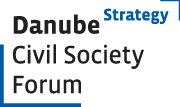Danube Strategy of the European Commission
The European Commission proposed on 8 December 2010 a strategy to boost the development of the Danube Region (Commission Communication – EU Strategy for the Danube Region). Member States endorsed the “EU Strategy for the Danube Region” (EUSDR) at the General Affairs Council on 13 April 2011 (Council Conclusions). This is the second EU macro-regional strategy after the EU Strategy for the Baltic Sea Region.
The Danube Region covers parts of 9 EU countries (Germany, Austria, Hungary, Czech Republic, Slovak Republic, Slovenia, Bulgaria and Romania, Croatia) and 6 non-EU countries (Serbia, Bosnia and Herzegovina, Montenegro, Ukraine and Moldova). The region is facing several challenges: environmental threats (water pollution, floods, and climate change), untapped shipping potential and lack of road and rail, transport connections, insufficient energy connections, uneven socio-economic development, uncoordinated education, research and innovation systems, shortcomings in safety and security.
The strategy is aimed at closer collaboration, creating synergies and coordination between existing policies and initiatives across the Danube Region.
Visit the website: http://www.danube-region.eu/about
 Civil Society Declaration 2015 of the NGO Committee on Social Development
Civil Society Declaration 2015 of the NGO Committee on Social Development
This Civil Society Declaration highlights a few of the areas of greatest import to Civil Society –namely inequalities and poverty, human rights, accountability, and means ofimplementation. In order for development plans to be effective for all in a rapidly changing world, Member States, Civil Society and the UN are rethinking relationships between these critical aspects of development, while continuing to promote decent work and social integration as put forward in Copenhagen.
Civil Society Declaration is available at: http://www.ngosocdev.net/index.php/download_file/view/211/1/
Danube Civil Society Forum
The DCSF is focusing with its Working Groups on four pillars of the EUSDR (Connecting the Danube Region, Protecting the environment in the Danube Region, Building Prosperity in the Danube Region and Strengthening the Danube Region). By concentrating on the specific issues, the DCSF tries to bring in the bottom-up approach of participation into the implementation and development of the Danube Strategy.
The DCSF is an active European and transnational actor in the Danube Region, which promotes the idea of European integration and the entire concept of the European strategy. It fosters the concept of active citizenship, participation, transparency and good governance in the Danube Strategy. The DCSF promoted and helped to organise the launch of the Participation Day in the Danube Strategy, the annual joint Civil Society “summit” closely linked to the Annual Fora of the EUSDR. Next to the Participation Day, DCSF is actively promoting annual national/regional hearings with civil society in all EUSDR participating countries.
The DCSF is an active partner to the D-LAP, the Local Actors and Civil Society Platform of the PA 10, the European networks of Civil Society and closely cooperating with participative structures and partners in the Baltic Sea Strategy.
Visit the website: http://www.danubestrategy.eu/danube-civil-society-forum/strategy-for-the-danube-region/
